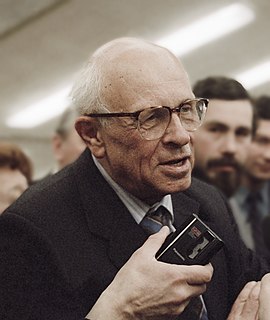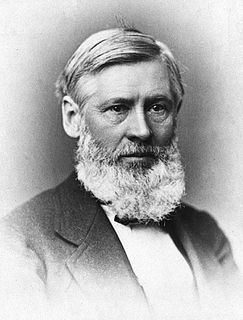A Quote by Fritjof Capra
As Eastern thought has begun to interest a significant number of people, and meditation is no longer viewed with ridicule or suspicion, mysticism is being taken seriously even within the scientific community. An increasing number of scientists are aware that mystical thought provides a consistent and relevant philosophical background to the theories of Contemporary science, a conception of the world in which the scientific discoveries of men and women can be in perfect harmony with their spiritual aims and religious beliefs.
Quote Topics
Aims
Aware
Background
Begun
Being
Beliefs
Community
Conception
Consistent
Contemporary
Discoveries
Eastern
Even
Harmony
Increasing
Interest
Longer
Meditation
Men
Men And Women
Mystical
Mysticism
Number
People
Perfect
Perfect Harmony
Philosophical
Provides
Relevant
Religious
Religious Belief
Religious Beliefs
Ridicule
Science
Scientific
Scientists
Seriously
Significant
Spiritual
Suspicion
Taken
Theories
Thought
Viewed
Which
Within
Women
World
Related Quotes
In mysticism, knowledge cannot be separated from a certain way of life which becomes its living manifestation. To acquire mystical knowledge means to undergo a transformation; one could even say that the knowledge is the transformation. Scientific knowledge, on the other hand, can often stay abstract and theoretical. Thus most of today’s physicists do not seem to realize the philosophical, cultural and spiritual implications of their theories.
The responsibility for the creation of new scientific knowledge - and for most of its application - rests on that small body of men and women who understand the fundamental laws of nature and are skilled in the techniques of scientific research. We shall have rapid or slow advance on any scientific frontier depending on the number of highly qualified and trained scientists exploring it.
One could count on one's fingers the number of scientists throughout the world with a general idea of the history and development of their particular science: there is none who is really competent as regards sciences other than his own. As science forms an indivisible whole, one may say that there are no longer, strictly speaking, scientists, but only drudges doing scientific work.
Even mistaken hypotheses and theories are of use in leading to discoveries. This remark is true in all the sciences. The alchemists founded chemistry by pursuing chimerical problems and theories which are false. In physical science, which is more advanced than biology, we might still cite men of science who make great discoveries by relying on false theories.
A number of aspects of mathematics are not much talked about in contemporary histories of mathematics. We have in mind business and commerce, war, number mysticism, astrology, and religion. In some instances, writers, hoping to assert for mathematics a noble parentage and a pure scientific experience, have turned away their eyes. Histories have been eager to put the case for science, but the Handmaiden of the Sciences has lived a far more raffish and interesting life than her historians allow.
We regard as 'scientific' a method based on deep analysis of facts, theories, and views, presupposing unprejudiced, unfearing open discussion and conclusions. The complexity and diversity of all the phenomena of modern life, the great possibilities and dangers linked with the scientific-technical revolution and with a number of social tendencies demand precisely such an approach, as has been acknowledged in a number of official statements.
Right now, culturally, we're seeing a really interesting evolution in ideas about spirituality and the world, right? The number of people who consider themselves to be religious and going to services is dropping, and the number of people who consider themselves to be spiritual but not religious is increasing.
The routine of custom tends to deaden even scientific inquiry; it stands in the way of discovery and of the active scientific worker. For discovery and inquiry are synonymous as an occupation. Science is a pursuit, not a coming into possession of the immutable; new theories as points of view are more prized than discoveries that quantitatively increase the store on hand.
Despite the international scientific community's consensus on climate change, a small number of critics continue to deny that climate change exists or that humans are causing it. Widely known as climate change "skeptics" or "deniers," these individuals are generally not climate scientists and do not debate the science with the climate scientists.
How can we find spiritual meaning in a scientific worldview? Spirituality is a way of being in the world, a sense of one’s place in the cosmos, a relationship to that which extends beyond oneself. . . . Does scientific explanation of the world diminish its spiritual beauty? I think not. Science and spirituality are complementary, not conflicting; additive, not detractive. Anything that generates a sense of awe may be a source of spirituality. Science does this in spades. (158-159)
I have characterized Ross as exemplifying an extreme position among theistic scientists. However, he is not so extreme as to promote the scientifically unsound notions of the young-Earth creationists and other anti-evolutionists ... They are so far off the scale that their scientific claims need not be taken seriously. Their distortions and misrepresentations of the scientific facts are not consistent with their self-righteous claims of acting to protect all that is good and moral.




































